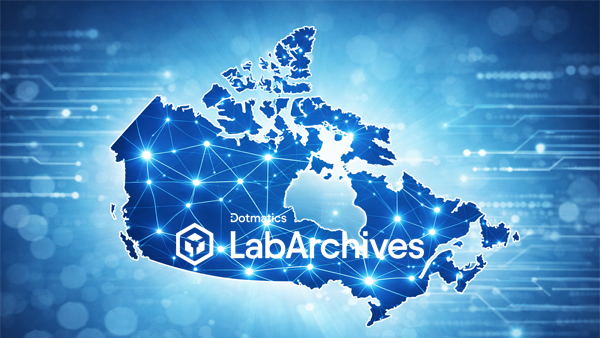In its commitment to advancing scientific transparency and reproducibility, the National Institutes of Health (NIH) introduced the 2023 Data Management and Sharing (DMS) Policy. The updated guidelines require all grant applications to submit Data Management Plans (DMPs) that align with globally recognized FAIR principles. This DMP requirement encourages researchers to proactively plan for data sharing, with the expectation that data sharing will become an integral part of regular research conduct.
In this article, we provide an overview on data repositories and how to identify compliant repositories that are most suitable for the data you are expected to share.
Selecting Data Repositories
Developing a well-structured DMP requires researchers to consider their data outputs and where they will best be shared with the larger research community.
Below is a list of key considerations for selecting repositories for your DMP.
1. Check Funding and Publication Requirements
Although the NIH does not endorse or mandate any particular repository, other funding agencies or special programs may have designated repository requirements.
When closer to publication, you may also want to consider that journals often have their own set of data sharing requirements for manuscript submission. These may align with domain-specific repositories that have become accepted as standard within the specific areas of research, which are discussed below.
2. Determine Discipline or Data-Specific Repositories
The NIH strongly encourages the use of niche repositories that cater to specific research fields or types of data. To help you identify suitable repositories for your data, we’ve consolidated recommendations from NIH and Nature with the flowchart below.
3. Explore Generalist Repositories
When a discipline-specific repository isn't available, the NIH encourages the use of generalist repositories. Generalist repositories can also be suitable for archiving associated analyses or experimental data that supports primary datasets shared in discipline-specific repositories.
Generalist repositories accept data regardless of data type, format, content, or disciplinary focus. However, this does not mean that any file-sharing service is compliant with NIH expectations. The NIH specifies a list of desirable characteristics for any repository, which we broadly categorized into four themes:
- Data Accessibility: The repository should make data easily accessible to other researchers while ensuring that any sensitive information remains protected.
- Long-term Viability: The repository should have a track record of data stability and availability, with sustainable technical infrastructure to ensure data preservation.
- Data Curation Capabilities: The repository should have tools that facilitate data-curation best practices, including use of metadata and persistent identifiers (PIDs)
- Security and Confidentiality: The repository should offer robust data-protection measures and have mechanisms in place to anonymize or de-identify data, if necessary.
The NIH supports a range of generalist repositories to facilitate the effective management and sharing of research data. Here's an overview of these repositories:
- LabArchives ELN: An electronic laboratory notebook (ELN) platform that allows researchers to document and manage their research data. Notably, ELN pages and file attachments can be annotated with metadata and tags, and contents can be directly published with a DOI or exported to Figshare.
- Figshare: A user-friendly platform where researchers can upload, share, and cite various research outputs. The repository offers secure data storage and provides a DOI for every uploaded item.
- Dataverse: An open-source application designed to publish, share, reference, extract, and analyze research data.
- Dryad: A curated general-purpose repository that makes research data discoverable, freely reusable, and citable. Dryad has dedicated curators to assist you with the datacuration process.
- IEEE Dataport: A platform for data storage, access, and management supported by the Institute of Electrical and Electronics Engineers.
- Mendeley Data: An open-access platform where researchers can deposit and share their datasets, ensuring their work is discoverable and citable.
- Open Science Framework (OSF): A collaborative tool that integrates with other tools and provides a comprehensive suite for project management.
- Synapse: A platform developed by Sage Bionetworks that supports collaboration and data sharing in a transparent and reproducible manner.
- Vivli: A global platform for clinical trial data sharing and collaboration.
- Zenodo: A catch-all repository funded by CERN that allows researchers to deposit a wide range of research-related digital artifacts.
Each of these repositories offers unique features and capabilities, ensuring that researchers have diverse options for data management and sharing.
Budget Considerations for Repositories
When selecting a data repository, it's essential to consider the associated costs. Repositories often have varied cost structures, which can range from free to premium pricing models. These costs can be influenced by factors, such as storage capacity, data-access frequency, and additional features like data-curation tools or enhanced security measures.
Before committing to a specific repository, researchers should consult with their institution. Many institutions have existing licenses, which can provide cost savings or free access for their members.
Conclusion
Data sharing is an integral part of modern research. By selecting the right repository, researchers can ensure their data is preserved, accessible, and can lead to further scientific discoveries. As the landscape of data repositories continues to evolve, staying informed and understanding the nuances of each platform will be crucial for researchers.
Many teams of varying sizes and specialties are turning to LabArchives ELN because it offers a variety of subscription options, from free plans for individuals and small teams to professional and enterprise options for larger organizations.
Sources:
- National Institutes of Health (NIH). (2023). 2023 Data Management and Sharing (DMS) Policy.
- National Institutes of Health (NIH). (2023). Selecting a Data Repository.
- National Institutes of Health (NIH). (2023). Repositories for Sharing Scientific Data.
- Nature. (2023). Data Repository Guidance.




